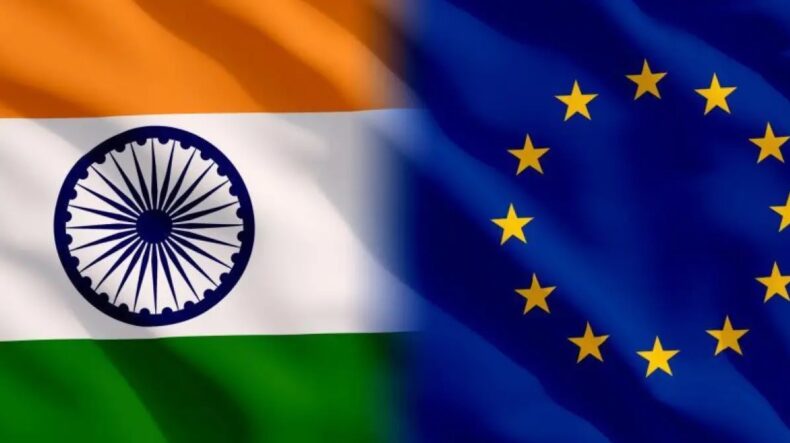India has finally resumed FTA negotiations with the European Union. The trade and investment agreement has been pending for the past eight years. See here.
The negotiations were held in Brussels. India and the EU announced the talks more than a year ago.
“Due to differences in the scope and expectations of the deal, the earlier negotiations were put on hold in 2013. “Now both partners are picking up from where they left off with the FTA talks,” said India’s Ministry of Commerce and Industry.
The EU trade commissioner, Valdis Dombrovskis has said, “We had a fruitful meeting with Minister Piyush Goyal.” We have restarted the negotiations toward a Free Trade Agreement. We have also started negotiations on an agreement on geographical indications and an investment protection agreement.
He referred to the partnership between the EU and India as “one of the most important relationships” for the 27-nation bloc in a statement for the coming decade.
The following round of FTA negotiations, according to Dombrovskis, will take place in New Delhi from June 27 to July 1.
Free Trade Agreement (FTA)
FTA is an abbreviation for Free Trade Agreements (FTAs).
It is an agreement between two or more countries to reduce trade barriers between them. Goods and services can be bought and sold across international borders with little or no government tariffs, quotas, subsidies, or prohibitions impeding their exchange under a free trade policy.
Trade protectionism and economic isolationism are considered to be opposed to free trade.
India-EU Relations
India and the EU have a very strong strategic partnership. It was one of the first countries to establish diplomatic relations with the EU. Its association dates from the early 1960s. The initial cooperation agreement was signed in 1994. It expanded the bilateral relationship beyond trade and economic cooperation.
Over the years, India and the EU have signed several bilateral agreements and memorandums of understanding. See here.
India liberalized its economy with the assistance of the International Monetary Fund (IMF) during the 1990s. It includes numerous reforms to India’s capital markets. This has also aided in the development of trade relations with other countries, including the EU.
The FTA appears to be crucial for India regarding technical assistance and the flow of investment. The EU’s assistance would allow European firms to extend their support to India in its plan to build 100 “smart cities” soon. India may also expect assistance for other initiatives.
The timing appears to be perfect for India and the EU to renegotiate the trade agreement and build trust not only to promote a rules-based multilateral order in the Indo–Pacific but also to achieve other strategic goals that have been strong in rhetoric but lacking in implementation for decades.












